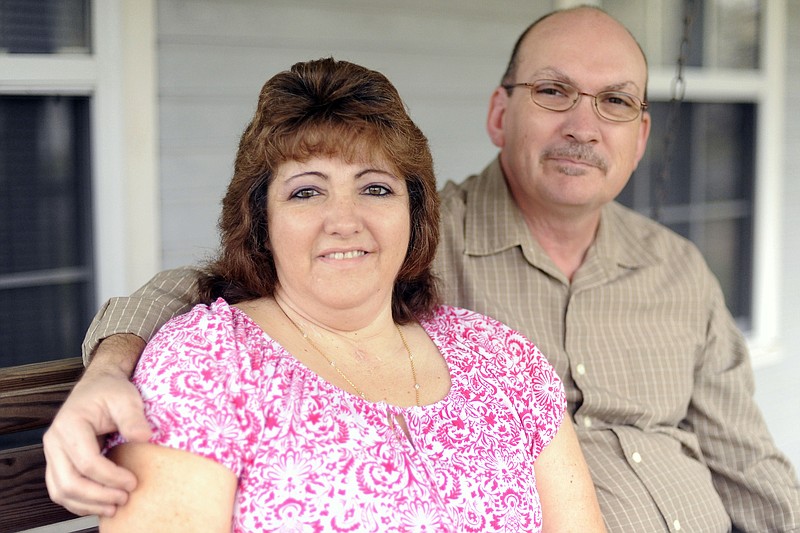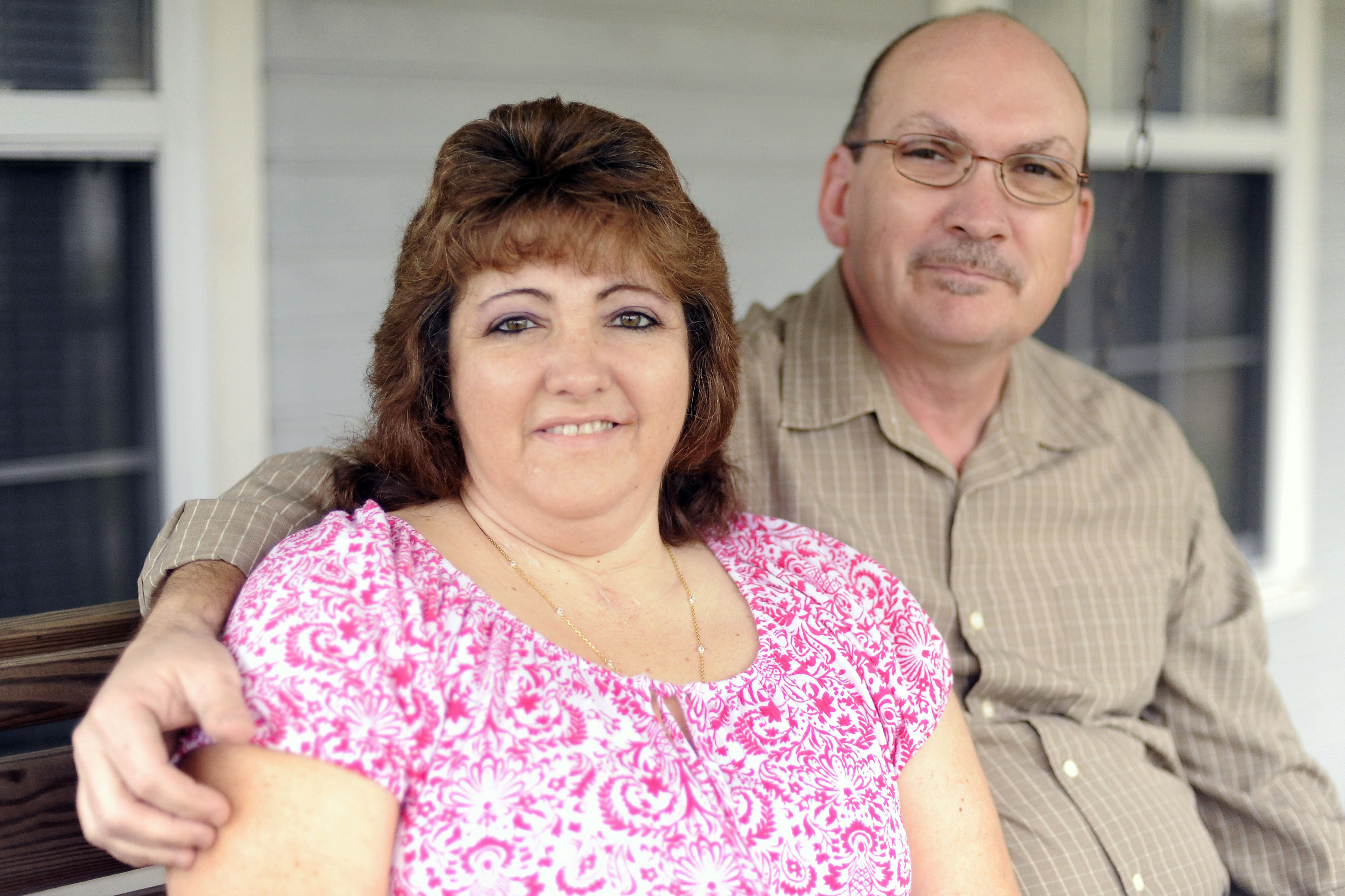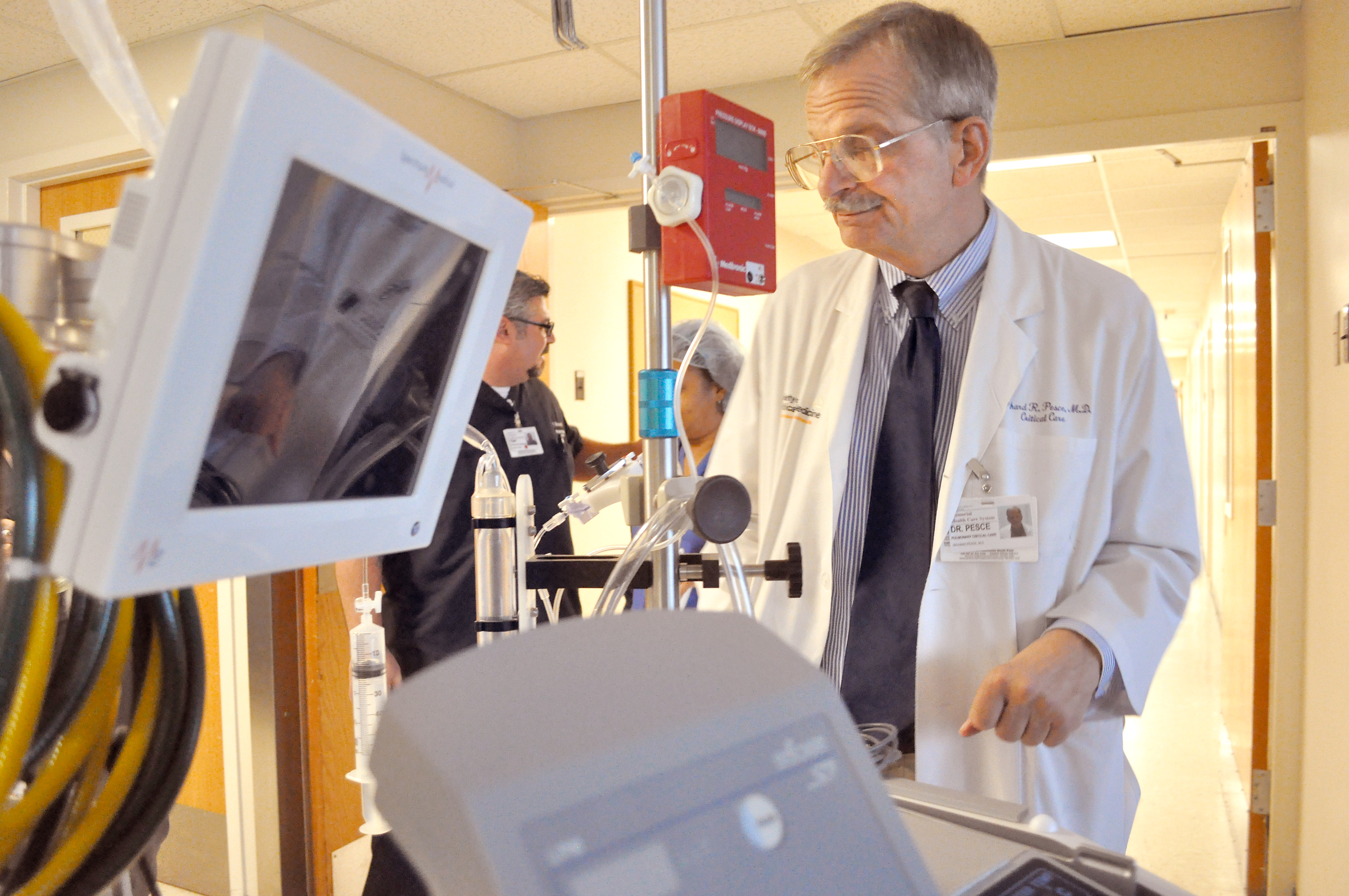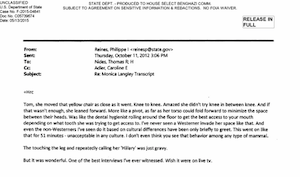SOUTH PITTSBURG, Tenn. -- Theresa Lint savors the moments in her kitchen -- drinking coffee with her husband, cooking dinner for her two sons and stopping to pet the family cat sprawled in a chair.
It has been a year since she came home from the hospital after viral pneumonia paralyzed her lungs and nearly killed her.
She recovered after doctors put her on a extracorporeal membrane oxygenation machine, known as ECMO, at Memorial Hospital. Lint was the first adult patient at Memorial to survive after being placed on the machine.
But she says she is grateful for every day and wants other people to know about the procedure that saved her life.
"I look at every day as something the Lord has given me to experience. You learn not to take life for granted," the 47-year-old said. "The reason I'm telling my story is because I want people to know there is a chance if it happens to you."
The illness began as what seemed like a simple flu. She went to the doctor, got some medicine but kept getting worse.
Lint's husband, Todd, picks up the story from his wife. He was on the road, a long-distance truck driver, but when he came home for the weekend, he insisted Theresa go to the local hospital, where she was admitted.
That night, he received a phone call, saying his wife was being taken to Memorial Hospital because she was getting worse.
Theresa doesn't remember much from that night. Her last memory is fighting Dr. Richard Pesce as he tried to put an oxygen mask on her.
"She was about as sick as she could be and still have a pulse," Todd said. "I didn't know if she was going to make it. Over the next two or three days, she kept getting worse and worse."
By that Wednesday -- Jan. 20, 2011 -- Pesce told Todd Lint that he thought the ECMO treatment was his wife's best hope. Despite being on a ventilator, her oxygen levels were dropping.
"He said she had about a 50 percent chance of making it," Todd Lint said.
The key to using an ECMO machine is putting the patient on it before he or she is too sick, Pesce said, because to survive, a patient needs to be in relatively good health. Theresa Lint was helped by the fact that she had been healthy before her illness and didn't smoke.
The ECMO machine is more frequently used for infants who do not have fully developed lungs or who have serious lung illnesses, Pesce said. Using it on adults with acute respiratory distress syndrome is much more rare.
Memorial is the only hospital in the Chattanooga area with an ECMO; the next closest is in Atlanta.
Since getting the machine eight or nine years ago, Memorial has used it on several adult patients who did not survive. But several years ago, they trained an entire team of about 35 people to use the machine and monitor the patient.
Theresa Lint was the first patient after the team was in place.
"We had a long talk with the team and her husband. He knew the pros and cons," Pesce said.
A surgeon inserted a large flexible tube, about the size of a thumb, into the jugular vein in her neck. A pump in the machine oxygenated her blood and returned it to her body through another tube in her neck, allowing her lungs to rest and heal.
A similar machine is used during some heart surgeries to both oxygenate and pump the blood, but Theresa LInt only needed the lung function since her heart was working well.
She was kept sedated most of the time she was on the machine. A team of five to six people monitored the machine, her blood temperature, IV lines and other vital signs.
"She had tubes and machines everywhere," Todd Lint said.
The next 18 days were long ones for Todd Lint. He stayed at the hospital most of the time, going up to the intensive care unit to visit his wife and read aloud long Bible passages out of Psalms and the Gospel of John. Even though she was unconscious, she was usually calmer when he was there, he said.
Then came the day Pesce allowed Theresa Lint to wake up. She couldn't talk because of a tracheotomy tube and was so weak she couldn't lift her arms.
Her first question, mouthed silently, was "What happened?"
The fact that more than 3 weeks had passed was a shock.
"I couldn't believe it had been that long," she said.
Recovery hasn't been easy. She left the hospital scarcely able to walk. The family, who did not have medical insurance, faces huge hospital bills, although the hospital is working with them on making payments. She has only recently returned to work part-time at the Goodwill store in South Pittsburg.
But the couple said they savor each day and are grateful for the hospital team that worked so hard to save Theresa's life.
The two celebrated their 25th wedding anniversary in December.
"The Lord sent me back to torture you some more," Theresa Lint jokes as she smiles at her husband.
He doesn't say anything, just grins.



